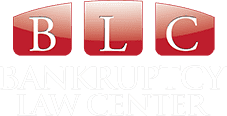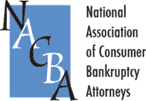
Navigating investments can be a daunting task, but understanding the risks and potential rewards can help individuals protect their financial future. Bankruptcy is one of many options available to those who may find themselves in an unfavorable financial position, as it can provide relief from creditors and significantly reduce or eliminate debt. This article will discuss how bankruptcy works, the various forms of bankruptcy available and the long-term implications they can have on an individual’s finances. It will also provide strategies to help individuals evaluate if filing for bankruptcy is the right move for them. By understanding their options, individuals can make informed decisions that will better position them to reach their financial goals.
Bankruptcy is often seen as a last resort option in managing debt due to its long-term implications. However, with proper guidance and information, it can be used as an effective tool for managing debt and improving an individual’s financial wellbeing. Bankruptcy allows individuals to discharge most or all of their debts while protecting some of their assets from creditors. In order for an individual’s debts to be discharged, they must file a petition with their local bankruptcy court system. Depending on the type of bankruptcy filed, certain assets may not be included in the discharge process and will remain subject to creditors’ claims against them.
Bankruptcy provides those facing financially challenging times with numerous options that could help improve their overall financial situation. This article will explore these options in greater detail and provide strategies for evaluating whether or not filing for bankruptcy is the right move for any given individual’s situation. By understanding how different types of bankruptcies work and familiarizing themselves with certain strategies, individuals can gain insight into how best to navigate investment risks while protecting their future financial prospects.
Understanding Bankruptcy And How It Works
Bankruptcy can be an effective way to help protect your financial future and manage investment risks. It is a legal process that allows individuals or businesses to restructure debt obligations and get a fresh start financially. Knowing how bankruptcy works and the potential risks of filing for it can help investors make informed decisions about their financial strategies.
Currency risk, default risk, credit risk, financial risk, and market risk are all types of investments risks. Currency risk is the possibility that changes in foreign exchange rates will reduce returns on international investments. Default risk is the likelihood that an issuer will fail to pay interest or principal on its debt obligations. Credit risk is the possibility that an issuer may not repay borrowed money as agreed upon in a loan agreement. Financial risk is the possibility of loss due to changes in prices of stocks, bonds, derivatives, commodities, or currencies. Market risk is the chance of losses due to fluctuations in stock prices or other markets.
Filing for bankruptcy can offer protection from these types of risks by allowing debtors to reorganize their finances without having to liquidate their assets. This type of restructuring helps investors maintain their investments while reducing their exposure to certain kinds of investment risks associated with creditors and lenders who may be unable to meet payment obligations. By understanding how bankruptcy works and its potential implications for investors, they can make more informed decisions about managing their investments over time.
Types Of Bankruptcy And Their Impact On Investments
When it comes to navigating investment risks, bankruptcy can provide investors with a degree of protection from default risk. Default risk is the potential for an investment product or security to default on its payment obligations. Bankruptcy can help protect investments from this type of risk, but investors must understand the different types of bankruptcy and their potential impact on investments.
For example, Chapter 7 bankruptcy is for individuals and businesses that have no hope of repaying their debts. In this type of bankruptcy, assets are liquidated to repay creditors. If a business declares Chapter 7 bankruptcy, investments in securities issued by that business may become worthless due to the liquidation process. On the other hand, Chapter 11 bankruptcy provides a business with the opportunity to reorganize its debt and continue operating. In this case, investments in securities may not be affected if they remain unaffected by any restructuring agreements with creditors.
Investors should also consider how other types of bankruptcy might affect their portfolio. For instance, if an individual files for Chapter 13 bankruptcy protection, he or she may be able to keep certain financial assets while repaying creditors over time through a court-approved repayment plan. This could result in reduced payments on certain investments such as bonds or stock dividends during the repayment period. As such, it is important for investors to understand how these different types of bankruptcies could potentially affect their portfolios before investing in any particular asset class or security.
Protecting Your Assets Through Bankruptcy
Bankruptcy is one of the most effective ways of protecting your financial future against investment risks. By filing for bankruptcy, you can protect yourself from a variety of potential threats to your assets, including liquidity risk, counterparty risk and default risk. Filing for bankruptcy can also be beneficial in terms of reducing or eliminating certain debt obligations, such as credit card balances or medical bills.
When considering bankruptcy as an option to protect your assets, it’s important to understand the types of investments that are not affected by the process. Generally speaking, government bonds and treasury bills are considered safe from bankruptcy proceedings and will remain unaffected by any changes to your financial situation. Other investments such as stocks, options and futures may be subject to involuntary liquidations during the bankruptcy process depending on your particular circumstances. It’s important to speak with a qualified attorney who specializes in bankruptcy law before making any decisions about protecting your assets through this process.
For investors looking for an extra layer of protection against investment risks, filing for bankruptcy can provide a reliable safety net. In addition to providing immediate relief from certain forms of debt obligations, it can also help preserve some investments while restructuring others that may be negatively impacted by financial instability.
Risks And Limitations Of Using Bankruptcy For Investment Protection
When it comes to investing, the risks can seem almost limitless. From the uncertainty of interest rates to the effects of political risk, there are a variety of factors that can affect your portfolio’s performance. Although bankruptcy can help protect your financial future, it is important to recognize the risks and limitations associated with this approach.
Business risks include changes in management or strategy that could cause unexpected losses. Unsystematic risk is also a concern, with events such as natural disasters or technological failures potentially impacting your investments negatively. Additionally, bankruptcy does not protect you from market value declines, which could occur due to macroeconomic factors beyond your control.
Although bankruptcy offers certain advantages when it comes to investment protection, it is important for investors to understand the associated risks before taking this approach. Evaluating potential gains against the potential losses is essential, and seeking professional advice may be beneficial in deciding whether bankruptcy is right for you and your investments.
Frequently Asked Questions
How Long Does A Bankruptcy Stay On My Credit Report?
Filing for bankruptcy is a difficult decision that involves many complex considerations. One of the most important questions an individual must ask when considering bankruptcy is how long it will remain on their credit report.
In short, bankruptcies can stay on your credit report for up to seven to ten years depending on the type of bankruptcy filed. It’s important to understand that each type of bankruptcy has its own timeline and impacts on a person’s financial future. Here is a breakdown:
Chapter 7: This form of bankruptcy remains on your credit report for up to 10 years from the date it was filed.
Chapter 13: This form of bankruptcy stays on your credit report for up to seven years from the date it was filed.
Chapter 11: This form of bankruptcy also stays on your credit report for up to 10 years from the date it was filed.
When filing for bankruptcy, you should take into account how long it will remain reported in your credit history, as this could affect your financial future in terms of taking out loans or applying for jobs. While bankruptcies can have serious implications, they can also help protect against financial hardship by providing debt relief which can lead to more secure finances down the line. It’s important to weigh all options before making a decision about whether or not to file for bankruptcy and seek professional advice if needed.
What Is The Difference Between Chapter 7 And Chapter 13 Bankruptcy?
When it comes to bankruptcy, there are two major types: Chapter 7 and Chapter 13. Deciding which option is right for you requires understanding the differences between them. Knowing the nuances of each type will help you make the most informed decision possible to protect your financial future.
To begin, Chapter 7 bankruptcy is a liquidation proceeding in which an individual’s non-exempt assets are sold by a court-appointed trustee and then used to repay creditors. It’s also known as “straight bankruptcy” or “debt liquidation." Exempt assets may include items such as clothing, furniture, and household goods. Some states even allow debtors to keep up to $25,000 of equity in their home or other real estate property. Also, some unsecured debts like credit card bills and medical bills can be wiped out through this process.
In contrast, Chapter 13 bankruptcy is what’s known as a repayment plan. Debtors typically propose a three-to-five year repayment plan that allows them to pay off all or part of their debt over time. This type of bankruptcy can also be beneficial if you have secured loans like a car loan or mortgage where you want to keep the property but need more time to pay off the debt. Additionally, it allows individuals who earn too much money for a Chapter 7 filing to still get relief from creditors and get back on track with their finances.
Here are five key differences between Chapter 7 and Chapter 13 bankruptcies:
Chapter 7 bankruptcies result in liquidation whileChapter 13 bankruptcies involve repaying creditors over time
In Chapter 7 cases, debtors must pass a means test before they can file whileChapter 13 cases do not require such a test
Creditors cannot collect debts discharged inChapter 7 proceedings while creditors can still collect debts discharged inChapter 13 cases
The filing fee forChapter 7 is higher than it is forChapter 13 whilethe length of repayment plans are generally longer underChapter 13 than they are under Chapter 7
Debts that cannot be discharged under either chapter include student loans, certain taxes and domestic support obligations
No matter which type of bankruptcy you choose, it’s important to remember that both processes offer valuable protections for individuals who find themselves overwhelmed by debt. Bankruptcy laws provide individuals the opportunity to resolve their financial issues in an orderly manner so they can move forward with their lives free from creditor harassment and stress caused by unmanageable debt.
Is Filing For Bankruptcy A Good Option For Everyone?
Bankruptcy is a serious financial decision that can have significant consequences. It is important to consider whether filing for bankruptcy is a good option for everyone in need of debt relief.
The two most common types of bankruptcy are Chapter 7 and Chapter 13, both of which are overseen by the U.S. Bankruptcy Court and have different rules and regulations. Chapter 7 bankruptcy involves liquidating assets to pay off creditors, while Chapter 13 bankruptcy creates a repayment plan to help a debtor restructure their debt over time.
When evaluating whether filing for bankruptcy is the best course of action, it’s important to understand the pros and cons associated with each type of bankruptcy so you can make an informed decision about which one best meets your needs. In general, filing for either form of bankruptcy will stop collection calls from creditors, end any lawsuits against you, discharge certain types of debts, and provide some protection against wage garnishments or repossessions by creditors. However, filing for either type may also negatively impact your credit score, making it more difficult to secure future loans or lines of credit.
It’s also important to remember that not everyone qualifies for either type of bankruptcy; income requirements vary based on where you live and if you have already filed for bankruptcy in the past. Additionally, certain types of debts cannot be discharged through either form—such as student loans or taxes owed—so it’s important to weigh all factors before making any decisions about filing for bankruptcy protection. Ultimately, seeking professional advice from a financial advisor or attorney can help guide you through the process so you can choose the right option to protect your financial future.
How Do I Know If I Am Eligible For Bankruptcy?
According to the American Bankruptcy Institute, over 700,000 Americans filed for bankruptcy in 2019. This statistic is just one example of how common this financial decision has become in recent years. With such a large number of people resorting to filing for bankruptcy, it is important to understand what it means and if it is right for you. The current H2 asks: How do I know if I am eligible for bankruptcy?
Bankruptcy refers to a legal process that helps individuals or businesses liquidate their assets and discharge debts in order to pay off creditors. To be eligible for bankruptcy, individuals must pass a “means test” which compares their income and expenses to determine whether they have enough disposable income to pay off their debts. If an individual does not meet the requirements of the means test, they may still be eligible for Chapter 7 protection if they can prove that their financial situation is unlikely to improve in the near future. Additionally, different types of bankruptcy also have distinct eligibility requirements based on individual circumstance.
It is important to note that filing for bankruptcy should not be taken lightly as it will stay on your credit report for up to 10 years and can negatively impact your ability to open bank accounts or take out loans in the future. Therefore, while filing for bankruptcy may offer relief from debt, it should only be considered after exploring other options such as debt consolidation or credit counseling services. Additionally, speaking with an experienced legal professional can help you determine if filing for bankruptcy is the best option given your unique financial circumstances.
What Is The Process For Filing For Bankruptcy?
Filing for bankruptcy is a difficult decision, but it can be a powerful tool to protect your financial future. Knowing the process of filing for bankruptcy involves understanding eligibility requirements and navigating the legal complexities.
First, you must determine if you are eligible to file for bankruptcy by meeting certain criteria, including:
Being unable to repay debt;
Having unsecured debts such as credit cards or medical bills; and
Meeting income requirements.
If your circumstances meet these conditions, then you may be eligible for filing for bankruptcy. Next, you need to decide which form of bankruptcy is best suited for your situation–Chapter 7 or Chapter 13. Chapter 7 eliminates most types of debts while Chapter 13 restructures your debt into a manageable repayment plan over several years. After deciding which form of bankruptcy will work best for you, it’s time to gather all necessary paperwork and information about your finances, including income statements and expenses records from the last two years. You can then consult with an attorney who specializes in bankruptcy law or fill out the appropriate forms yourself online or through the courts system in your state. Once this is complete, you will attend a court hearing where a judge will review your case and make a decision on whether or not to accept the filing petition and discharge any outstanding debt obligations under the law governing bankruptcies in your state.
Taking steps towards filing for bankruptcy can be intimidating but having knowledge of the process can help alleviate some stress surrounding this difficult decision. Knowing what’s required ahead of time allows individuals to become more informed regarding their options so they can make decisions that are right for them and their financial future.
Conclusion
When it comes to protecting your financial future, navigating investment risks can be a difficult process. Bankruptcy is one option that can provide relief in the face of looming debt, but it’s not right for everyone. To fully understand this option and make an informed decision, it’s important to understand the bankruptcy process and the different types of bankruptcy available.
One must first understand how long a bankruptcy will stay on their credit report as well as whether or not they are eligible for bankruptcy. It’s also important to know the difference between Chapter 7 and Chapter 13 bankruptcy, as each have different rules and processes in place.
Finally, any decision regarding filing for bankruptcy should be made with caution. It is a serious financial matter that should never be taken lightly or without careful consideration of the consequences. When done correctly, however, filing for bankruptcy can offer a fresh start and provide much-needed financial relief in times of hardship.









